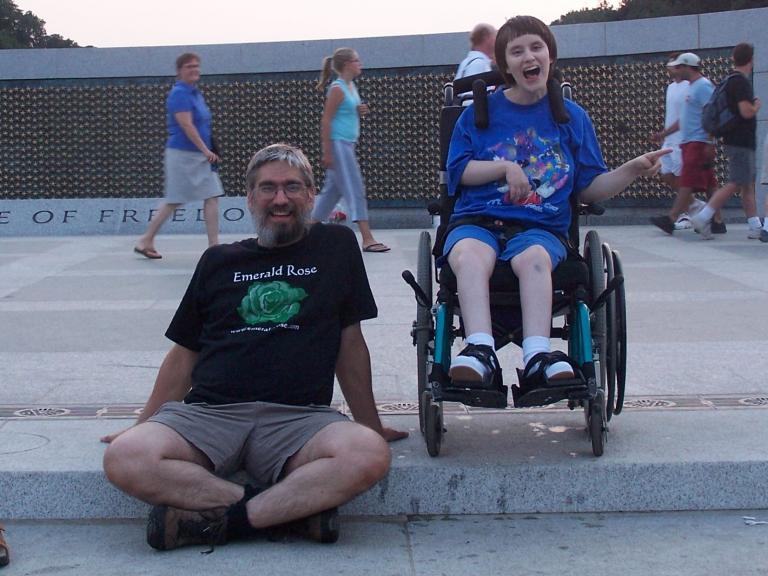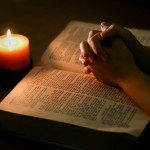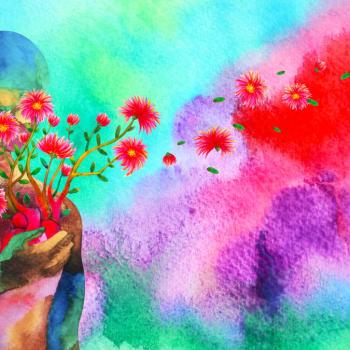A reader wrote the following question to me.
My son has a very rare developmental disability, Prader-Willi-Syndrome, and needs 24/7/365 monitoring. How, given his awareness level, is he able to assimilate even the basics of what it means to be holy? Because of his disability, he has little concept and interest, if any at all, in anything spiritual, yet I’ve read many spiritual writers, such as yourself, who either don’t address the question, or, if they do, only briefly mention it. Carl, I’m absolutely convinced that this is a concern for you as well as for the others I have read, but, I either haven’t read or don’t understand how to approach this question.
Thank you for your question and my heart goes out to you, your son, and your entire family. As you may know, I had a daughter born with Polycistic Kidney Disease who, likewise, was developmentally delayed and then, at age 3, suffered a debilitating stroke that left her confined to a wheelchair and compromised in her intellectual capabilities. She never learned how to read beyond Dr. Seuss, and her faith didn’t go much beyond “Jesus loves me, this I know.”

And she was probably the holiest person I’ve ever known.
Holiness, like infused contemplation or the ability to recognize mystical union, is ultimately a gift from God. I cannot make myself holier than I am, any more than I can make myself taller than I am.
Now, having said that, I admit that many great teachers in the Christian tradition do insist that one’s level of holiness is calibrated to their will: in the words of the Blessed John Ruusbroec, “you are as holy as you want to be.”
We are wading into deep paradoxical waters here. Because I do agree with Ruusbroec — on one level. We can choose to pursue holiness, or to not give a damn (literally). But the heart of a paradox is that the opposite of one deep truth is another deep truth. And so the opposite of “you are as holy as you want to be” is “holiness is a gift from God, that we really don’t have any control over.”
To answer my reader’s question: I only have the most superficial knowledge of Prader-Willi, but my hunch is that your son probably won’t be able to assimilate “the basics of what it means to be holy,” at least not on a purely human level — just like Rhiannon, my daughter, couldn’t assimilate even the basics.
She never truly understood such things as heroic virtue, or kenosis, or prodigal generosity, complete self-forgetfulness, dying to self, or even that suffering is profoundly redemptive. None of those concepts would have made a bit of difference to her.
Holiness is Not Measured By Our Abilities
And yet, she lived it.
She suffered. Boy did she suffer. She could lose herself in a song, or a joke, or a hug. She loved far beyond what her intellectual capabilities would ever have seemed to merit. She knew how to forgive (and how to ask for forgiveness). She demonstrated contrition, and, I might add, was certainly capable of refusing to be contrite as well! Hey, even a great saint still falls, still makes mistakes. Rhiannon was no exception.
She trusted Jesus. She was remarkably serene in the face of her death, after years of persistent anemia related to liver disease that, in turn, was an outgrowth of her kidney disease. The last two months of her 7-month hospice journey was marked with suffering, and the final week pretty much filled with agony. And yet, she trusted. She was clear that death just meant no longer hanging out with her mom and me, and being with her grandmother and godmother instead. Her faith continues to inspire and amaze me, three and a half years after her passing.
Here’s the thing. Holiness, or sanctity, or even unio mystica, is like DNA — there’s no one-size-fits-all. Each of us is called to be a unique expression of the image and likeness of God. Some of us are gifted with a variety of gifts, physical, mental, creative, intellectual, emotional. Others, less so. And some of us, like Rhiannon and my reader’s son, must make their way through life with challenges that the rest of us find unimaginable.
I don’t think being handicapped or disabled or whatever-other-cr0ss-you-may-bear automatically makes one holy. My daughter could have been just an angry, bitter, miserable person. And most reasonable people would not have blamed her — would have said she was justified in being so unhappy, given the hand that life has dealt her.
But here’s the thing: she was more compassionate, more kind, more loving, more caring, than most people who had an infinity of advantages beyond what she would ever enjoy!
Did God give her some extra goodies to compensate for her disability? Maybe, but who can measure such things? And the very next person down the pike, with similar upbringing and similar challenges, might not have those “extra goodies” — so I think it’s dangerous to generalize about things like that.
One-of-a-Kind Miracles
Here’s what I do know, and what I do believe. Each of us is a miracle. Each of us is a one-0f-a-kind creation (yes, even identical twins make their own unique choices) with our own never-t0-be-replicated array of gifts and talents and crosses to bear. It’s a mystery why some of us get such a free pass while others have such a difficult path.
Does that make God a monster? I don’t think so — because, once again, I’ve seen holiness in the eyes of people with unbearable challenges, and I’ve seen emptiness in the eyes of the privileged. So we have to throw out this idea that God plays favorites, because the real issue is not what hand we’ve been dealt, but how we choose to live given that hand.
So it’s a mystery. You’re as holy as you want to be — which is why you get folks like me running around trying to get people to pray the Daily Office and practice Lectio Divina and pray in silence. All of that helps us to choose to be holy. But it’s a mystery, because not everyone has the cognitive or moral skills (or privileges) that you and I may have — but they can far outstrip us in the way they live a sanctified life.
So what do we do? We pray. We love. We forgive. We try to grow in all the above. And we do the best we can. And some days our best is better than others. And for some people, their best is better than others.
And in all of it, God loves us. God calls each of us according to the imprint of our unique DNA. And it’s in that uniqueness that we are invited to love, and to be loved, and most important of all, to be love.
Thanks for this question. It’s really important.
To my reader, God bless you and your son. Pray for me, as I will pray for you.
Enjoy reading this blog?
Click here to become a patron.














